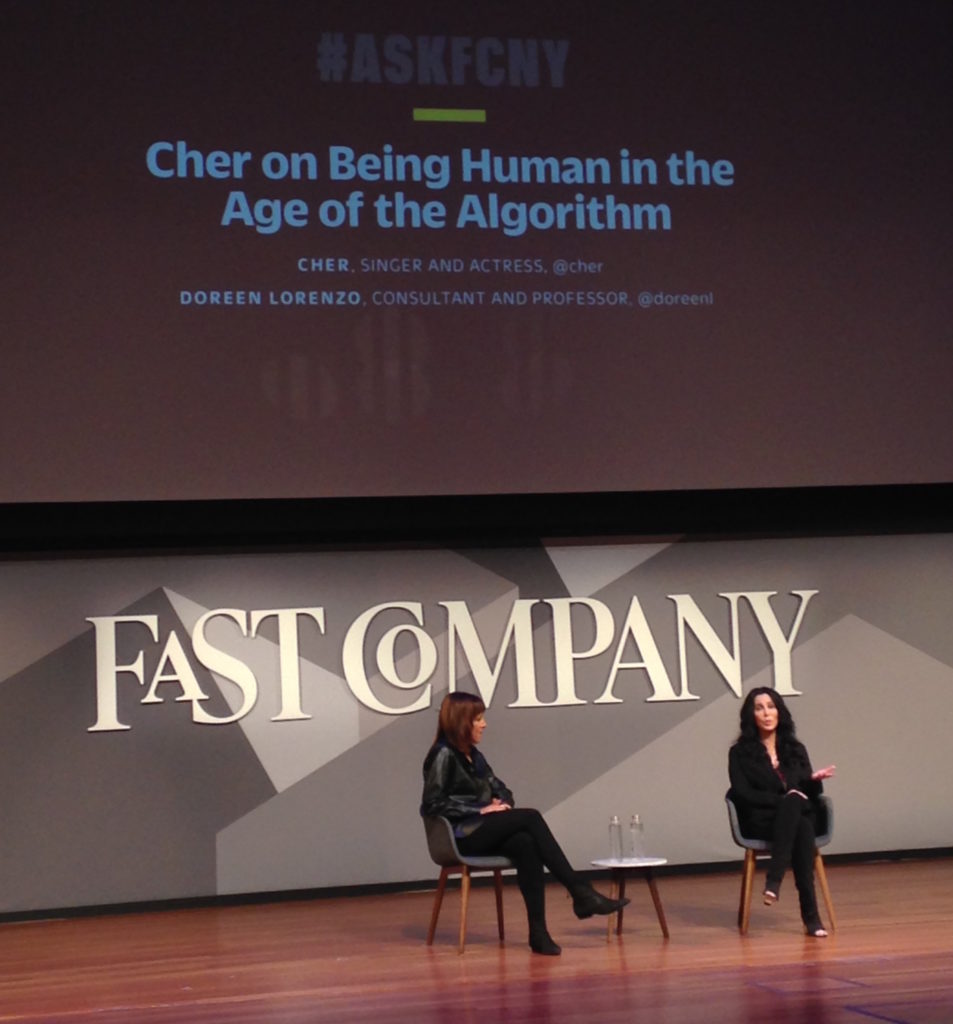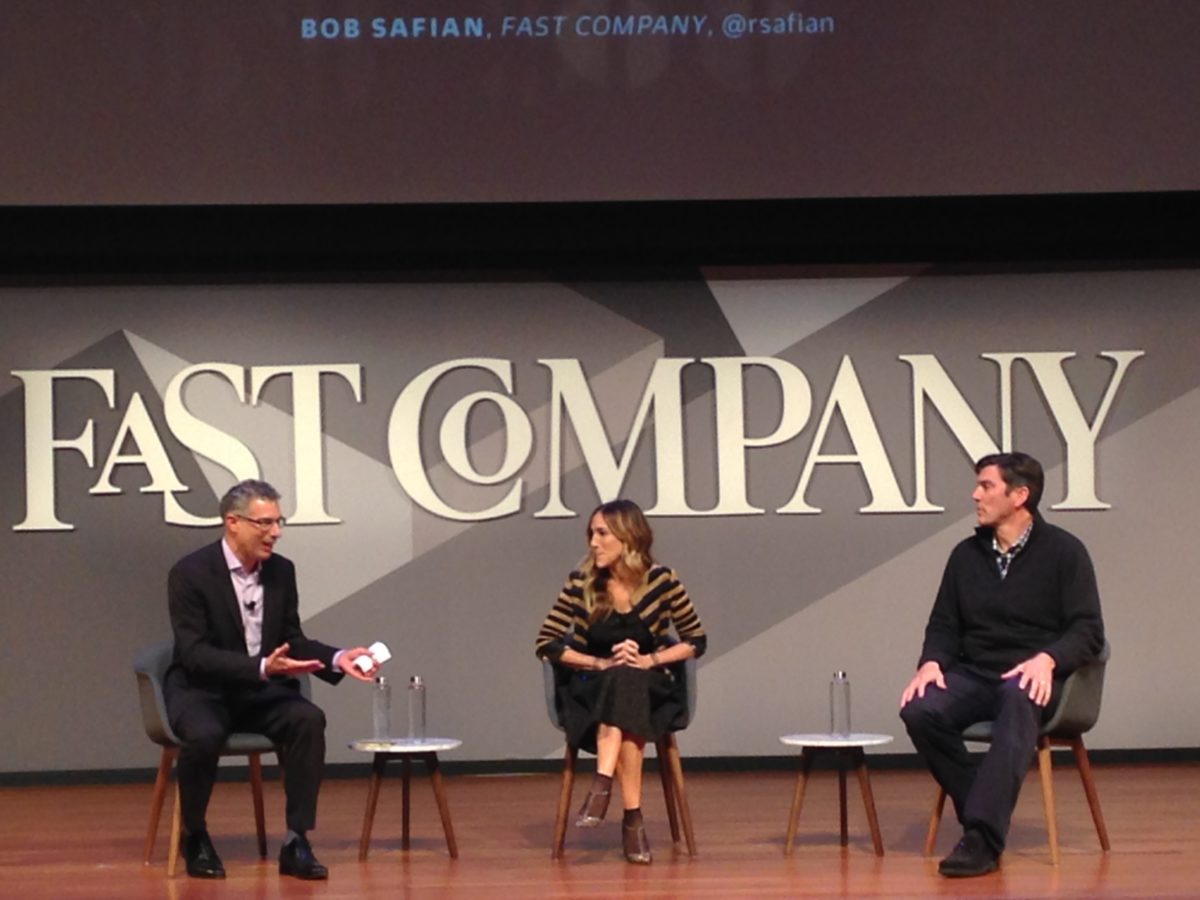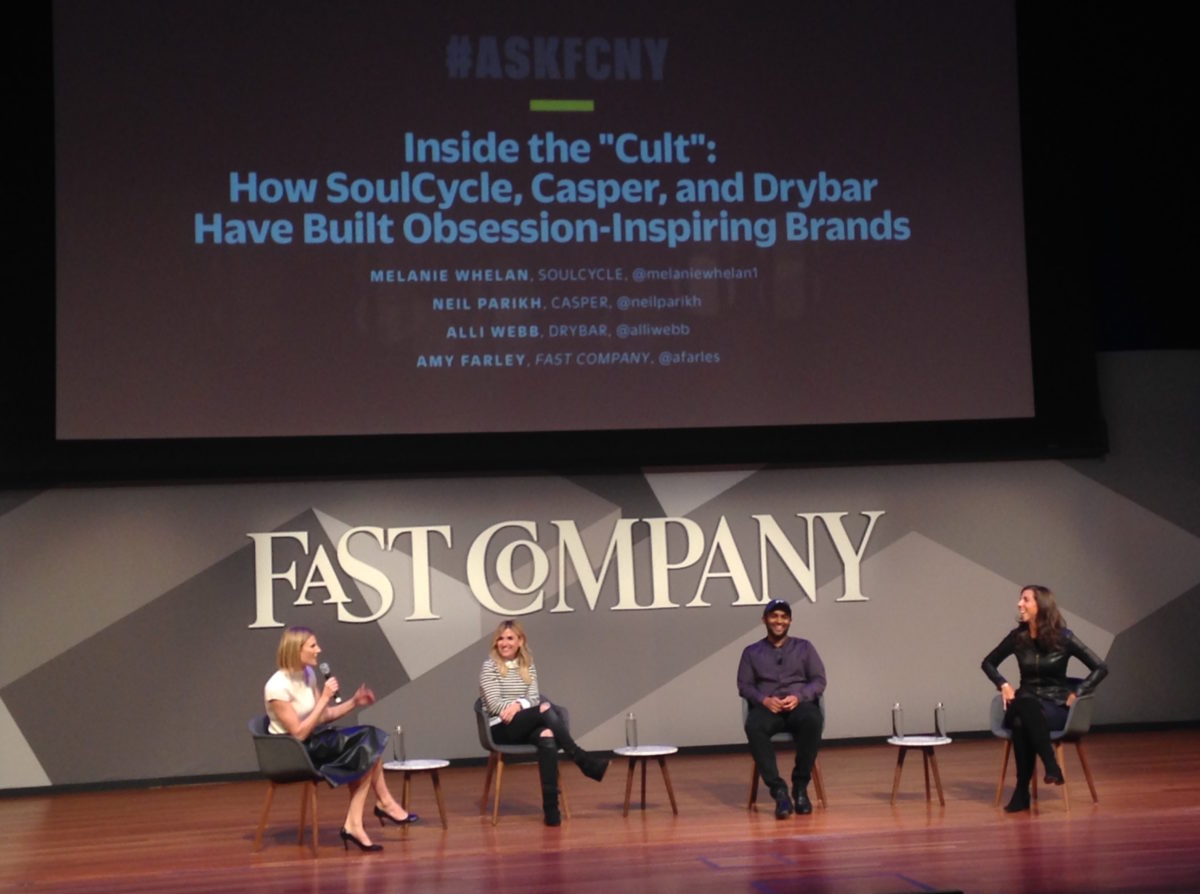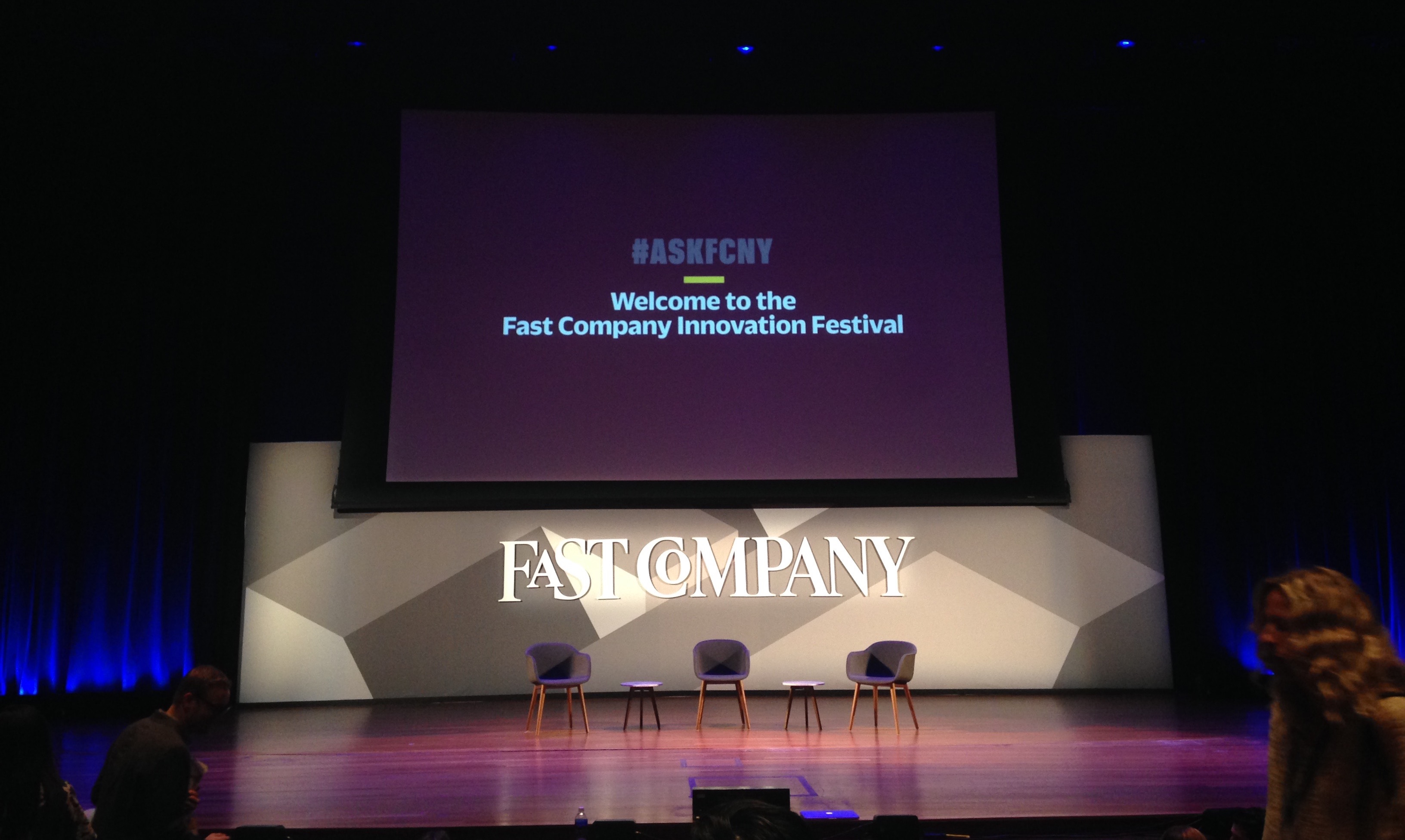The Fast Company Innovation Festival occurred earlier from Nov. 1 to 4. More than 5,000 curious thinkers donning yellow name-tags and wielding notebooks and pens convened at Civic Hall and New York University’s Skirball Center in hopes of finding their mission and deepening their purpose, as per the festival’s theme.
All-access passes cost almost $2,000 and day passes cost close to $400, but The Center for Student Success offered New School students free tickets to 12 sessions of the conference, organized by business media publication Fast Company.
Influential individuals including Melinda Gates and Samantha Bee discussed entrepreneurship, technology, leadership, design, and more over the course of the four-day festival. Out of the 150 featured speakers, however, this reporter was most drawn to Wednesday, Nov. 2’s sessions headlining the Goddess of Pop; the star of “Sex and The City”; and the brains behind SoulCycle, Casper, and Drybar.
Here is an inside look at the happenings of #FCNY16.

Armed with Emojis, Cher wants Millennials to take over America’s “mess”
Having just completed six events for Hillary Clinton’s presidential campaign, Cher sent 180,000 bottles of water to Flint, Michigan, deeply upset about the power discrepancies and toxic tap water plaguing the city.
“We forget [about Flint], because it’s not on the front page,” Cher said in her enduring drawl. “People have to have it in their consciences to care.”
Yes, that Cher. The Fast Company Innovation Festival’s “Being Human in the Age of the Algorithm” panel paired the singer and actress with design innovator Doreen Lorenzo, in which the pair discussed Cher’s humanitarianism and everything from Twitter to Trump.
Booming with passion onstage, the entertainment star’s hysterical self-deprecation drove the panel’s audience members into nonstop laughter.
“I’m not a huge Cher fan, but it’s okay,” Cher joked.
What she takes seriously, however, are the contemporary issues plaguing America. She said the entirety of her focus has been dedicated to the 2016 presidential election. “It’s your turn to take over this mess,” she said, addressing millennials. “You have the energy. You have the ideas!”
“Trump is a huge a**hole… It actually gives him dignity to call him that,” she said. “I don’t get the disconnect. I don’t see how we [women] can make a bigger mess than guys have already made!”
She shares such no-nonsense opinions in well-informed and Emoji-replete tweets. “I learn so much about what’s happening [in the world] on Twitter. I mean, there’s a bunch of crap, but some great stuff, too,” she said. Because Cher is dyslexic, she thinks “Emojis are heaven” and compares the expressive emoticons to “hieroglyphics.”
But don’t categorize what Lorenzo described as Cher’s fun, creative, interesting, fabulous energy as “authentic.”
“I’m not even sure I know what authentic means,” Cher said.

Follow Sarah Jessica Parker and Tim Armstrong’s advice and start taking more risks
Sitting alongside Sarah Jessica Parker, the producer and actress best known for her role in “Sex and The City”, and AOL’s CEO Tim Armstrong, Fast Company editor Robert Safian moderated a conversation addressing the importance of risk-taking as part of the “Taking Risks and Evolving in Business” panel.
“Leadership starts when there is none,” Armstrong said. He explained that regardless of age or occupation, the more risks a person takes early on in his or her career makes them more comfortable seeking new opportunities. “Decision-making and risk-taking come with practice… Take thirty risks your first year out of college!”
Parker, who helms the SJP by Sarah Jessica Parker shoe label, imparted wisdom based on her own personal experiences. “Accumulate ideas internally before you take the risk… I thought business was about numbers,” she said. “But it’s not! I was a tragic math student. It’s the people that make the business.”
Creativity precedes the mathematics and numbers involved in business, Armstrong affirmed. Both he and Parker agreed that this creativity stems from taking control of one’s personal narrative—an act, they said, that is exciting and even heroic.
“You have to survive to subsidize the risk, the dream,” Parker said. “People want something original, authentic, and personal… It’s up to you to communicate, to share the story.”
After all, genuineness feels refreshing, especially in what can seem like an oversaturated online content landscape. Armstrong pressed audience members to consider which gap their career path or entrepreneurial pursuit will fill, where they’ll be in one to two years, and with whom they want to lead.
New School students, as active participants in the current media evolution and overall, can try Armstrong and Parker’s advice on for size in their own academic and extracurricular endeavors, with the same fervor as Carrie Bradshaw trying on Manolo Blahniks. Armstrong said he constantly considers how human connections are enabled by digital platforms, predicting that as audiences and experiences evolve, “changes in media are going to happen exponentially faster than people think.”

Creating an experience out of a “chore” is the key to entrepreneurial success
SoulCycle CEO Melanie Whelan, Casper co-founder and chief operating officer Neil Parikh, and Drybar founder Alli Webb agreed that even in this digital age, individuals are searching for meaningful personal interactions. On the “Inside the ‘Cult’: How SoulCycle, Casper, and Drybar Have Built Obsession-Inspiring Brands” panel stage, the talented trio unanimously acknowledged the secrets to maintaining prosperous companies, as moderated by Fast Company’s Amy Farley.
They attribute their success to the positive relationships they have made with their customers.
“We [at SoulCycle] believe that consumers are looking to connect on a human-to-human level… We hire for attitude and aptitude, rather than experience,” Whelan said, describing the boutique spinning gym as a “culture of yes” that is “people driven.”
Parikh said that his mattress ecommerce company strives “to make the customer’s problem our problem.” When a high influx of orders delayed mattress manufacturing, he said, employees immediately ordered air mattresses directly off of Amazon for all customers whose Casper mattresses wouldn’t be delivered timely.
And Webb revealed that constantly soliciting feedback from her clientele helps pinpoint areas of which her blowdry salon chain Drybar can improve upon.
“We’re selling a feeling,” said Webb, citing the happiness she said her clients capture in selfies after getting blowouts from Drybar. Whelan and Parikh echoed her same sentiment, concluding that all three companies are delivering unique experiences. Laying the groundwork for building a booming business, the panelists said, comes from changing consumer behavior by transforming ordinary activities—in their case, grooming, exercise, and sleep—into these enjoyable experiences.
While it may seem daunting, New School students daydreaming about starting their own companies, from fashion brands to sustainability organizations, can benefit from such insights.
But even those who aren’t entrepreneurially-inclined can grow from applying the panelists’ wisdom to their daily life. Who doesn’t prosper from fostering meaningful connections with their peers, professors, and pals?







